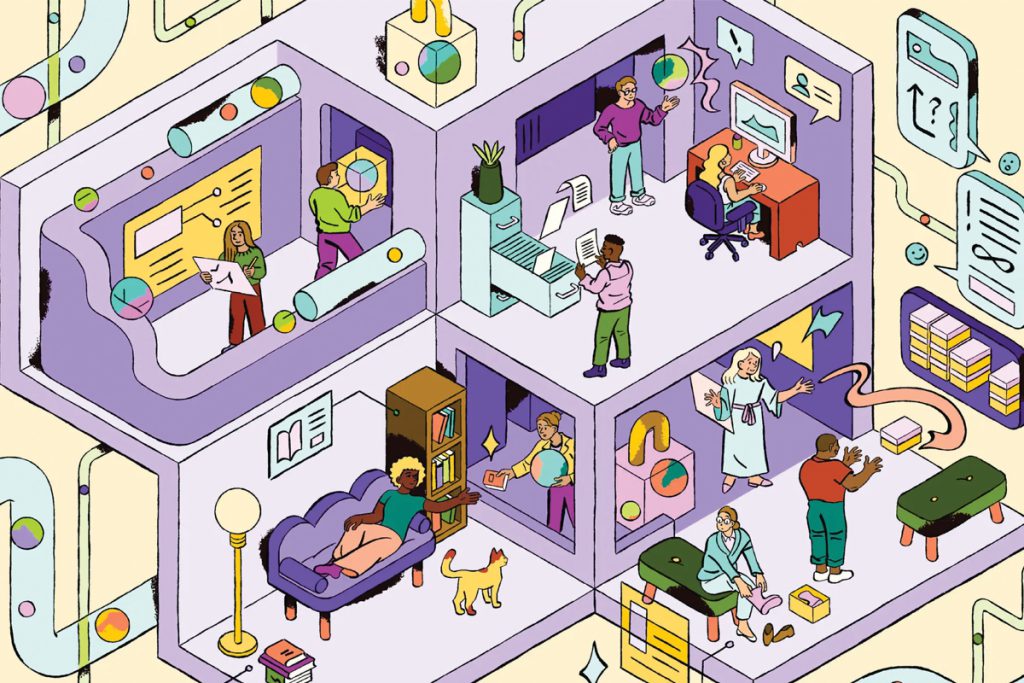AI adoption is inevitable, and businesses must be thoughtful in its implementation to ensure it delivers maximum ROI
Words by Maureen Chong
Customer experience leaders are facing the biggest challenge today. They must prepare for an AI-powered future, while meeting rising customer expectations and tough targets. According to McKinsey, many companies across the world are struggling on all these fronts.
Major disruptions to the way we work and do business are always a challenge, and transitioning to a CX function with effective human-AI collaboration may yet be the biggest disruption in the history of contact centres. Today, CX success hinges not only on AI adoption but also on reinventing CX operations to ensure agility in the face of disruption. It’s perhaps why 89% of CX leaders believe CX will undergo a period of unprecedented change over the next 3 years, transforming the industry as we know it, according to Zendesk research. This brings us to the question: How do CX organisations achieve agility in the age of AI?

Reinventing the role of CX agents
The Zendesk Future of AI-powered CX Report notes that over the next three years, the role of human agents will evolve significantly and almost all customer conversations will be powered by AI. Traditional contact centres are a thing of the past. As CX leaders look to reinvent their operations, the path is clear — leaner and more efficient teams, enhanced strategic decision-making, and achieving greater competitive advantage.
In fact, 74% of CX leaders in India believe that in 3 years the agent workforce will be reduced significantly. AI-powered contact centres will see the evolution of agents into more skilled professionals, equipped with problem solving skills required to handle complex requests. That’s because contact centres are expected to deploy AI-powered tools to automate repetitive tasks, knowledge management, and self services. As the role of support agents evolves, businesses will achieve greater flexibility in structuring frontline CX teams.
This change is already underway, with AI-powered tools enabling human agents to seamlessly pick up a conversation from an AI agent and know exactly who the customer is, and the details around their issue. Generative AI-powered CX tools have the ability to suggest replies to customer queries, ensuring contextual information is readily available. This is improving important KPIs like first reply times and resolution times as human agents have a full view of customer information readily available in one window.
As AI technology continues to advance, so will its capabilities and use cases. Agile organisations recognise that assuaging the fears around AI replacing jobs, is just as important as implementing AI within the organisation. AI adoption is inevitable and businesses must be thoughtful in its implementation, ensuring it is done in lockstep with employee upskilling and reskilling initiatives to see maximum ROI on their technology investments. Providing employees with opportunities to develop AI skills with clear career pathways and empowering them with more advanced tools to better help customers can go a long way in diffusing employees’ fears. As a result, learning and development will become more targeted and feature AI-supported scenarios to refine human capabilities.
How will AI drive agility?
Amid rising customer expectations, CX leaders in India are expecting a five fold increase in customer interactions. The only way businesses can maintain service quality and stay agile is through the use of AI. That’s where AI-powered agent copilots come into play. These AI assistants help contact centre employees respond faster to business challenges and work far more effectively. With AI-powered tools fully integrated into their workflow, agents have all their tools and data in one place to quickly access relevant information, follow business procedures and approve the copilot’s actions.

AI’s ability to analyse vast amounts of information quickly enables support agents, admins and CX leaders to act with agility by delivering relevant, real-time insights directly to them. Businesses armed with AI-driven insights can anticipate customer needs, identify issues before they become bigger problems, and deliver more personalised experiences in real-time. AI also helps agents stay on top of their knowledge management, by proactively developing help centre articles based on common queries, trawling through lengthy product manuals to summarise key information during a customer conversation, and surface proactive insights to pre-empt customer needs.
Another emerging area where AI can drive agility is in the original support channel. Even as messaging gains popularity, phone support still remains one of the most preferred channels of communication, especially for complex issues. Complementing the role of human agents, voice AI can be deployed to handle the initial conversation, collecting and analysing the customer information, and proceed to either autonomously solve the issue or intelligently triage it to a human agent if the issue is a complex one. It can also boost agent productivity with instant insights, automatic transcribing and summarisation. These efficiency gains made possible by AI enable CX teams and organisations to respond more swiftly to changes, make faster, data-driven decisions, and pivot as needed—key components of agility.
The path forward
In an era defined by rapid advancements in AI and shifting customer expectations, CX leaders face a pivotal moment: embracing AI-driven agility to transform their operations and prepare for an AI-first future. The journey toward agile, AI-powered customer support isn’t simply about implementing new tools; it requires a strategic reinvention of CX functions, blending technology with a skilled, adaptive workforce. As AI automates routine tasks and augments complex decision-making, the role of CX agents will evolve into more specialised, high-skill positions, fostering a collaborative human-AI ecosystem.
With AI copilots and intelligent voice assistants reshaping traditional contact centres, CX organisations are positioned to handle surges in customer interactions without compromising on personalisation or efficiency. However, achieving sustainable success in this transformation means investing in employee upskilling, alleviating concerns about job security, and integrating AI seamlessly into workflows. The road to agile, AI-enhanced CX operations lies in harnessing AI’s potential not only to meet today’s demands but to anticipate tomorrow’s challenges—driving a new standard in customer experience that is resilient, responsive, and human-centred.
Maureen Chong is the Regional Vice President for Asia at Zendesk


